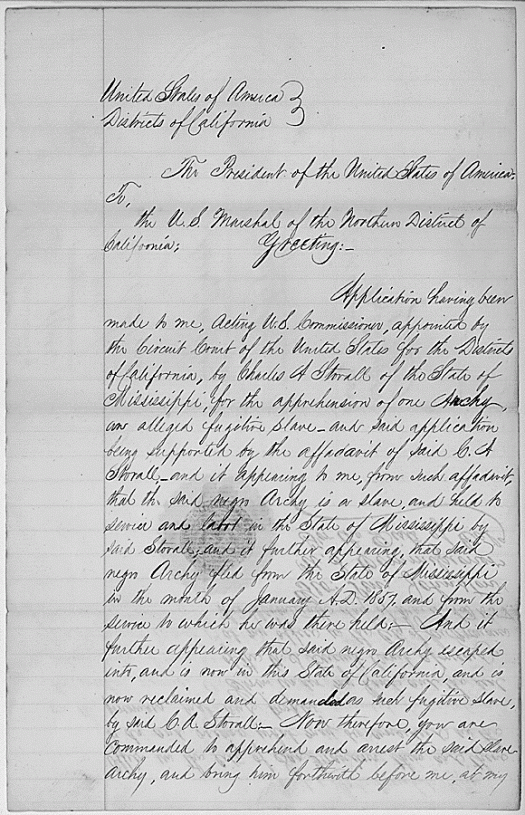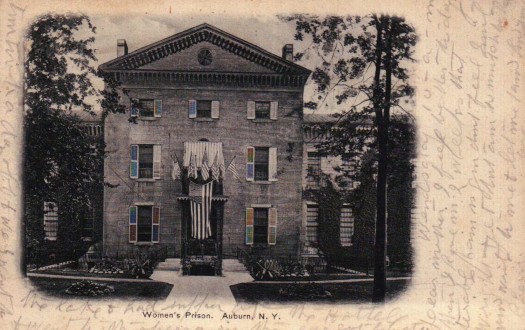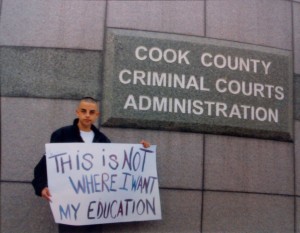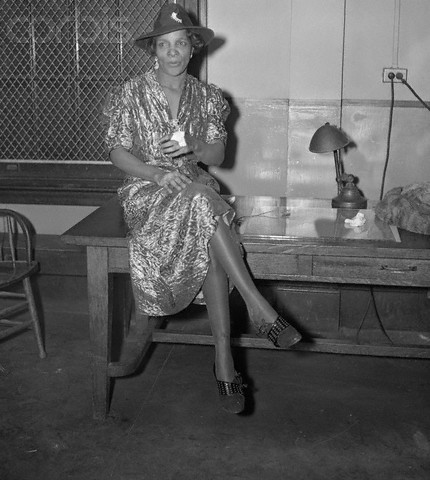Jerry rode his bike on a sidewalk. He was arrested. At the police station, an officer said that Jerry kicked him in the shin. He was sent to jail. At Jerry’s hearing, the judge ordered a $20,000 bond. He has no money and could not post $2,000 bail.
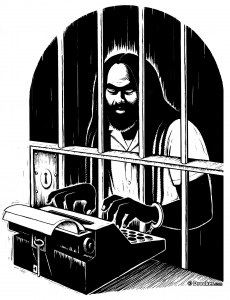
Mumia by Eric Drooker
So the community
rallied in record time to raise the funds to bail him out of jail. Since the funds were not immediately available, Ethan, co-founder and facilitator of
Circles and Ciphers, offered to use his personal credit card to post the bond.
At 10 am this morning, Ethan arrived at Cook County Jail and paid $2,000 to free Jerry. He stood in line with dozens of other people waiting for the release of their friends and loved ones. Minutes turned into hours. People who were waiting began to talk about being disrespected and feeling dispirited. There was radio silence; no information about when anyone would be released. The system dehumanizes.
Seven hours later Jerry walked out of jail and Ethan was there to meet him. He waited those long hours for Jerry’s release. Standing with the others who were anxiously and apprehensively waiting the (perhaps temporary) return of their missing…
I’ve been really sick for days and decided to leave my house because I was going stir-crazy. I returned to hear Jerry’s voice on my answering machine and for the first time in days, I felt the knot in my stomach begin to loosen just a little.
Jerry’s next court date is June 24th. He is like countless young men in Chicago ensnared in the web of a corrupt criminal legal system intent on devouring him. The system is voracious and insatiable.
Jerry is unlike countless young black men in Chicago because he had a community who could and did rally to his support. A community that refused to allow the system to feed on his body until he was fully consumed.
As Jerry sat in jail for days, he contemplated his “choices” — plead guilty to a crime that he didn’t commit or sit in jail until his next court date nearly three weeks away. Jerry would have pleaded guilty had he not been informed yesterday that funds had been raised to post bond. He said that he didn’t think that he would have lasted much longer in jail.
So for now, the system has not succeeded in abducting another young black man. Jerry will survive to fight another day against the bogus charges he faces. And I can only say thank you to each person who made this outcome possible. As I sit here tonight to write these words, I am also shedding a few tears for the thousands of Jerrys sitting in Cook County Jail facing a similar ‘choice.’ They’ve been accused and are waiting for their cases to be heard. They are behind bars in a jail that is a living hell. They are mostly black and brown bodies who don’t have a community and who must face the beast alone.
I breathe deeply and recommit to resisting the injustice of this criminal legal system. I vow to continue to fight for all of the Jerrys and the Jennys in this city and I hope that you will too. Thank you and peace to you all.
